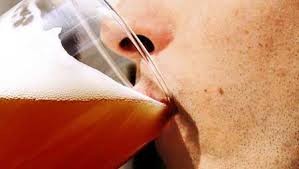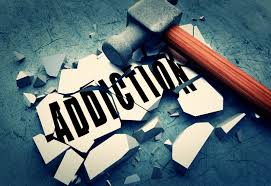Compulsive drinking problems and denial

Compulsive drinking problems and denial must be terminated if we want to deal with this problem meaningfully
Compulsive drinking problems and denial: Alcohol dependence
Are you at the verge of becoming an alcoholic? I may not have the facts about you, but one fact is common with people who are into alcohol and drugs. I am talking about denial which is one of the biggest obstacles to getting help for all the compulsive drinking problems (alcohol abuse and alcoholism). The desire to drink is so strong that the mind finds many ways to rationalize drinking, even when the consequences are obvious. By keeping you from looking honestly at your behavior and its negative effects, denial also exacerbates alcohol-related problems with work, finances, and relationships.
Compulsive drinking problems and denial: If you have a drinking problem, you may deny it by
- Drastically underestimating how much you drink
- Downplaying the negative consequences of your drinking
- Complaining that family and friends are exaggerating the problem
- Blaming your drinking or drinking-related problems on others
Take, for example, you may want to blame your ‘unfair boss’ for trouble at work or a ‘nagging wife’ for your marital issues, rather than look at how your drinking is contributing to the problem. And even though activities involving work, relationship, and financial stresses can happen to everyone, experts at AWAREmed health center reiterates that, an overall pattern of deterioration and blaming others may be a sign of trouble. Therefore if you find yourself rationalizing your, drinking habits, lying about them, or refusing to discuss the subject, take a moment to consider why you’re so defensive. If you truly believe you don’t have a problem, there should be no reason for you to cover up your drinking or make excuses. And if you are persuaded that something is not right, immediate action needs to be taken. You may now want to consider scheduling for an appointment with doctor Dalal Akoury today for the commencement of your treatment and recovery process. In the meantime, the following are additional signs and symptoms of compulsive drinking problems to help you make informed decisions.
Compulsive drinking problems and denial: Other signs and symptoms of alcoholism (alcohol dependence)
You’ve lost control over your drinking. You often drink more alcohol than you wanted to, for longer than you intended, or despite telling yourself you wouldn’t.
You want to quit drinking, but you can’t. You have a persistent desire to cut down or stop your alcohol use, but your efforts to quit have been unsuccessful.
You have given up other activities because of alcohol. You’re spending less time on activities that used to be important to you (hanging out with family and friends, going to the gym, pursuing your hobbies) because of your alcohol use.
Alcohol takes up a great deal of your energy and focus. You spend a lot of time drinking, thinking about it, or recovering from its effects. You have few if any interests or social involvements that don’t revolve around drinking.
You drink even though you know it’s causing problems. For example, you recognize that your alcohol use is damaging your marriage, making your depression worse, or causing health problems, but you continue to drink anyway.
Compulsive drinking problems and denial: Alcohol dependence http://www.integrativeaddictionconference.com/wp-admin



